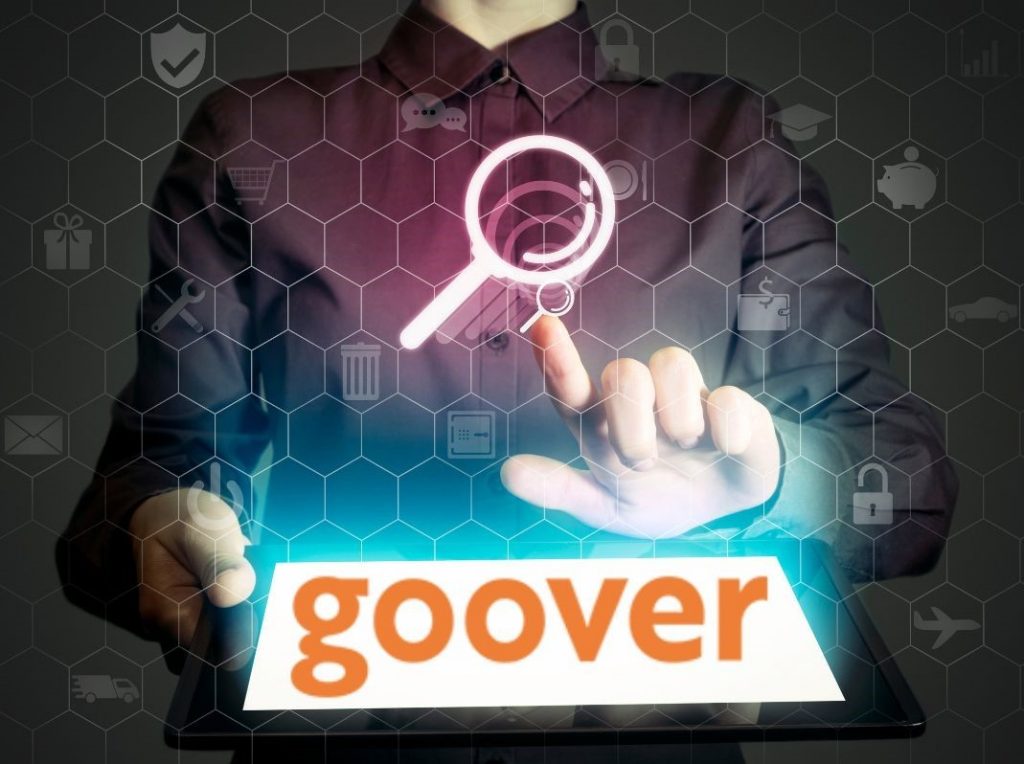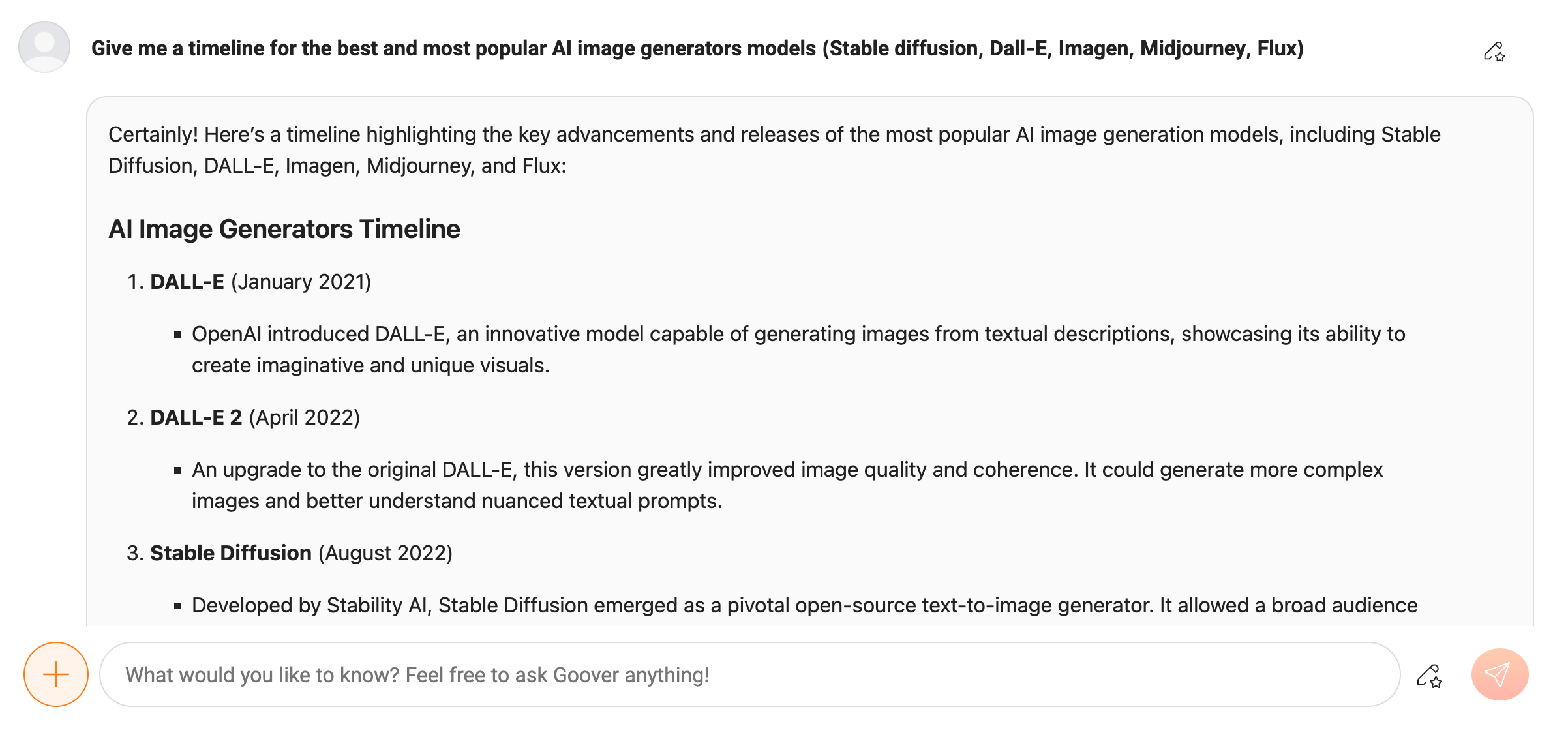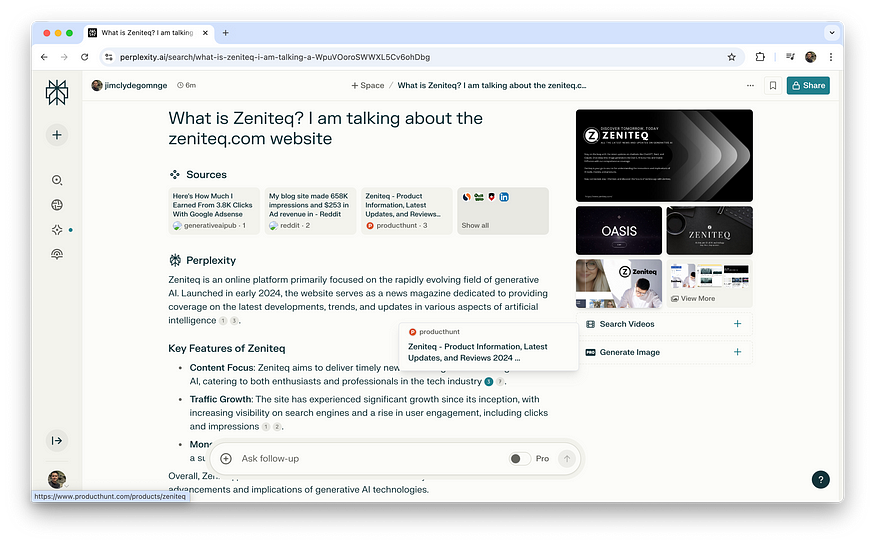Education & Career Trends: November 16, 2024
Curated by the Knowledge Team of ICS Career GPS

Article by Jim Clyde Monge published on Medium.com
In 2024, the search engine market experienced a major shakeup. Google Search, the biggest and most popular, faced a wave of criticism after launching its new AI-powered overview feature, which many users felt was rushed and incomplete.
Meanwhile, Perplexity AI, an AI-driven search engine, quickly gained popularity, amassing a loyal user base because of its highly praised features. Recently, even OpenAI joined the search scene by integrating a new search feature into ChatGPT.
With more AI-powered search engines emerging, it’s becoming tricky to figure out which one is best.
And now, there’s a new player entering the AI-powered search engine game with a promise of delivering more accurate results—it’s called Goover.
What is Goover?
Goover is a new AI search platform that offers fact-checked, reference-supported insights similar to Perplexity AI. It provides a reliable, interactive AI experience focused on accuracy and user friendliness.

Goover is still new, and the company still has a lot of more cool features to roll out in the future. You can check more details of it here.
Key Features of Goover
Goover comes equipped with a variety of interesting features:
- Insight reports: It is powered by some advanced LLM technology that analyses your data and generates comprehensive reports.
- Hyper-personalised briefings: Discover topic summaries, insight reports, and a selection of personalised recommendations.
- Deep Answers: When you need an in-depth answer, Goover can provide it. These responses take a little longer to generate but offer more detailed, thoughtful insights.
- Quick Answers: Perfect for when you need straightforward information fast. Goover provides concise answers without sacrificing relevance.
What Sets Goover Apart?
Here’s a set of features that distinguish it from other AI search engines.
- Briefing Pages: Quick, relevant topic summaries keep users informed without lengthy reading.
- Reference Tracking: Each response links to credible sources, ensuring transparency and reducing misinformation.
- Anti-Hallucination: Responses are grounded in verified data, enhancing trustworthiness.
Now, let’s see how it stacks up against Perplexity AI in a head-to-head comparison.
How Does It Compare to Perplexity AI?
Let’s begin with the user interface.
Both Goover and Perplexity have a clean design with a prominent search field at the center. However, Goover has a “smart feed” and “smart briefing” section right below the search bar.
If you’re one who regularly checks the news or wants quick insights into their uploaded files, you’d appreciate these added features in Goover.
Here’s a side-by-side comparison of their homepages:


Another notable feature in Goover is its support for a wider range of file types. Besides traditional file uploads, you can attach personal notes, saved links, and resources.

Perplexity, on the other hand, only supports file uploads.
Here’s what it looks like when you try to upload a file, a note, and a URL in Goover as references before it begins its search across the web or its knowledge base.

This additional flexibility could be useful for users who need organised and comprehensive research.
Now, let’s see how Goover and Perplexity perform in terms of the following capabilities:
- Research capability
- Mathematical calculations
- Web searching capabilities
- Logic questions
Research Capabilities
In this test, the author wanted to see if both tools could accurately provide the release dates and versions of popular AI image models.
Prompt: Give me a timeline for the best and most popular AI image generators models (Stable diffusion, Dall-E, Imagen, Midjourney, Flux)
Here’s the result from Goover:


As you can see, the AI gave me a timeline of 11 image models. Perplexity, however, only mentioned 9 models.

Looking closely at the results, it was noticed that Goover was able to pull in information about the upcoming release of Midjourney V7. This is something that Perplexity was not able to provide.

This level of detail gives Goover an edge, especially for users wanting comprehensive information on the first try.
Another example.
Prompt: What impact does illegal software usage have?
Here’s the response from Goover.

Here’s from Perplexity:

Even though the differences in the results were pretty much the same what’s interesting to notice are the sources from which the results were pulled.
In Goover, for example, it got its results from 9 various references.

In the case of Perplexity, it used 8 various resources, which is one reference behind Goover.

Additionally, in Goover’s references section, we, can click on the “Go over” button, and the AI will generate a content briefing for us.

Pretty cool, right?
Web Explore Capabilities
Let’s see how well each platform explores and analyses new websites.
In the prompt below, the AI was, asked about a new website the author had launched a couple of months ago:

Zeniteq, as indicated on its website zeniteq.com, appears to be a company that might focus on advanced technology solutions, potentially in fields like artificial intelligence, data analysis, or analytical technologies, similar to other companies in this domain like QinetiQ.
Goover is somehow right that the website is about technology, but the uncertainty in the tone of its answer makes it a bit of an unreliable source of information.
In contrast, Perplexity accurately identified Zeniteq as an online platform specializing in generative AI, noting its launch date and main content focus.

Zeniteq is an online platform primarily focused on the rapidly evolving field of generative AI. Launched in early 2024, the website serves as a news magazine dedicated to providing coverage on the latest developments, trends, and updates in various aspects of artificial intelligence
A follow-up was asked about who created Zeniteq. Again, Goover failed to answer the question.

While Perplexity was able to give the correct answer.

Zeniteq was created by Jim Clyde Monge, who launched the website in early 2024. Monge aimed to establish Zeniteq as a news magazine focused on the generative AI sector, providing insights and updates on various AI technologies, including conversational AI and image generation
Math problems
The Effectiveness of Goover and Perplexity in handling basic math questions was also tested with an equation
50^0.75
According to Goover, the equation above would result in approximately 17.78—which is wrong.

Perplexity’s answer, on the other hand, was short, but it was correct.

But the language models aren’t optimised for math problems, so any LLMs out there, even the most powerful, are still prone to calculation errors.
Logic questions
Both platforms were then tested with basic logic questions to see how they handled them.
Prompt: How many ‘r’ letter are in the word strawberry?
Here’s Goover’s result:

Here’s from Perplexity:

Both Goover and Perplexity correctly identified the answer. However, Goover took it a step further by explaining how it arrived at the answer—which is really great.
Let’s take another example:
Prompt: Give me 5 countries with letter A in the third position in the name
Here’s the result from Goover:

Here’s the result from Perplexity:

Surprisingly, both Goover and Perplexity failed to provide the correct answers. It’s a tricky prompt, and for some reason, even the most powerful AI models like GPT-4o and Google Gemini 1.5 Pro struggle with it.
Improvement Suggestions
While Goover is still new and a lot of changes can be expected to come over the next couple of weeks, some of the minor things can be tweaked to improve the user experience. Such as:
- Ability to Expand the AI Response Panel
For longer answers, it would be helpful to have an expandable answer section. A full-screen mode or an “expand” button could be useful for viewing detailed responses more comfortably.

2. Automatic Search History and Content Briefing Saves
Search and results history cannot be found anywhere on the site.
The content briefing feature is also really nice. But an option to automatically generate and save those briefings could be added.
3. The Reference Files and URLs are Not Preserved
Currently, reference files and URLs aren’t preserved after closing the modal window. This isn’t a huge issue, but it would be helpful if these references were saved by default until users choose to delete them.
Perhaps Goover plans to reserve such functionality for paid users.
4. Speed and UX Improvements
Goover occasionally experiences slight lags and unresponsiveness. Optimising the speed and user experience should be a priority to provide a smoother search process.
Additionally, a small tweak like having the Goover icon redirect users to the homepage would be a nice touch instead of redirecting them to a completely different website.

Final Thoughts
In the past decade, Google has been the only name most people associate with search engines, whether on their phone or desktop. It completely dominated the market, and no competitor seemed capable of challenging it—until this year.
Generative AI has changed how we find information on the internet. ChatGPT and Perplexity AI are among the major apps making people rethink their loyalty to Google. In 2024, users began to realise that they could have more personalised, AI-driven experiences in their searches.
Goover is trying to blend the best of both worlds—generative AI and personalization.
Goover’s “deep answers” feature is impressive. It really dives into researching to produce well-thought-out results and insights. Honestly, I find these results more accurate compared to other tools like Perplexity or Gemini. It’s basically their take on Perplexity AI’s Pro search but without the limitation of just 3 searches a day.
The reports and briefings are also new features that are pretty interesting. And the fact that it’s free makes it an attractive alternative to paid tools like Perplexity. Upcoming features and upgrades that are in store for Goover would be interesting to see and how it plans to compete directly with Google and Perplexity.
…
Have you checked out yesterday’s blog yet
3 Uses of AI in Mental Health Care
(Disclaimer: The opinions expressed in the article mentioned above are those of the author(s). They do not purport to reflect the opinions or views of ICS Career GPS or its staff.)
Like this post? For more such helpful articles, click on the button below and subscribe FREE to our blog.



